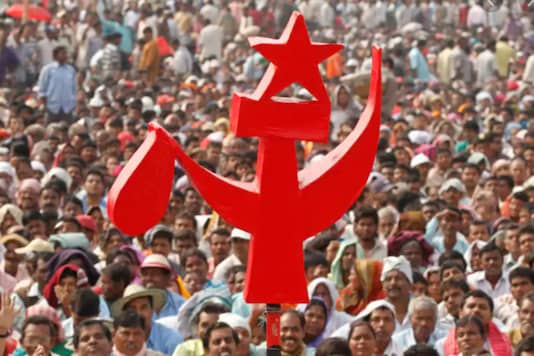 Suchetana Chattopadhyay
Suchetana Chattopadhyay
In a fractured present dominated by the predatory logic of capital, what are the corporate academic industries lying before those interested in aspects of the revolutionary anti-imperialist past?
In the course of the last decade, there has been a resurgence of imperialist historiography with a focus on revolutionary movements, the left and decolonisation. They are gradually gaining ground over the stuffily conservative, narrowly empiricist and solidly unapologetic Anglocentric model of imperial history writing where the consciousness, languages and cultural productions of the Untermenschen or the rebels among them have no space. The recent trend of imperialist historiography has several intersecting segments. One of the lesser strands offers a deliberately depoliticised ‘culturalist’ projection of revolutionaries and movements; this comes with morbid neo-Victorian obsessions. The invocations of corpses, body-parts and false indigenism in neo-idealised forms are reminiscent of the séance. Some of the more obscure aspects involve bizarre levels of fetishised necromancy; this even includes devotion to the handlebar moustache as a symbol of the alien male biology of the colonised races. The mystique of the moustache, while ludicrous, evokes a macabre fashion: mimicry of racist pasts culminating in numerous ‘Final Solutions’. A post-mortem of this ‘invasion of the body snatchers’ is too tedious and intellectually underwhelming to undertake here. Bereft of deeper mystery, they are confined to surface readings of texts and images, the material which colonial administrators dismissively classified as ‘vernacular’. Often, these are reiterations of the vintage anthropological gaze and decorated by the stitches of the racial taxidermist’s ‘art’. The dominant strand is denial of colonial oppressions by manufacturing fictive notions of ‘transnationalism’ and ‘internationalism’. These works are closely related, in terms of research method, with the older imperialist Anglocentric productions upholding Namierite hypothesis based on colonial records. While the older model over-emphasises the local, the ‘transnational’ industry is an odd mix. It tends to eclectically draw on literary production of the people on the move and formations being surveyed while also relying on official sources. There is a recurrent attempt to reduce racialised subjecthood under formal and informal empires of capital to a seamless interpretation of ‘transnationalism’ where capitalism-driven imperialism casually fades to the background. The older meaning of ‘transnationals’, coined by and associated with giant monopoly corporations of capitalism simply evaporates. The attempts to ‘discover’ and re-invent the ‘oriental’ in this wider spectrum as a denizen of a fabricated, barrier-less ‘internationalist’ or ‘transnational ‘ milieu matches other, more old-fashioned but continuing attempts to ‘re-Orientalise the Orient’. The twin projections of colonial and semi-colonial subjects as the ‘oriental’ and the ‘internationalist’/’transnationalist’ are not paradoxical but complementary; they are academic projects foregrounding the historically constituted empires of capital as absent yet benevolent.
The current modish (and not-so-modish) articulations are in complete conformity with a liberal understanding of ‘internationalism’. In this sort of literature, the ‘cosmopolitan’ outlook or travel is rarefied in various ahistorical ways and re-invented as illusory ‘internationalist’ signs. This interpretive framework herds together cosmopolitan existence, forced and voluntary migration with underlying material compulsions, all manners of nationalist exiles, and cosmopolitan travellers from the colonial and semi-colonial world with supportive connections in host societies of the nineteenth and twentieth centuries as either ‘internationalist’ or ‘transnational’ and sometimes both. People become faded maps and torn travel brochures. Such positions ignore the political forms taken on by the metropolitan bourgeoisie of the imperialist nation-states which produced variants of imperial nationalisms based on the core ideas of race and surplus-extraction, including fascism. They also side-line, downplay and even erase the ideological conflict between ‘bourgeois nationalism’ and ‘proletarian internationalism’ as organised political positions across the continents of the globe. The pull in fascist ultra-nationalist and communist internationalist directions put liberal imperialism and its political forms on the dock. The developing clash during heightened moments of capitalist crisis made liberal imperialism, especially the Versailles political order of the interwar period complicit with fascism. ‘Internationalism’ was and remains a political position and its origins are to be traced back to the left. The bourgeoisie of international finance, industry and trade regarded and continue to regard the planetary market as international, the source of ‘infinite’ bounty while consistently projecting their own identities as bound by national borders or the wider iron-clad, barb-wire fences of economic and political ‘blocks’ they have erected. Seen against this backdrop and as a key development against world capitalism, the political practice of communists at war-time, interwar and post-war eras of the twentieth century cannot be classified as just another variant of cosmopolitanism, enhanced through the current mainstream readings of ‘internationalism’ and ‘transnationalism’. Their ideas and actions represented the antithetical current capital had been unable to supress: ‘the ruthless criticism of all that exists’. The left was not just premised on ‘interrogating’ what existed but a long practice of collectively rejecting, going beyond and replacing the capitalist and linked propertied orders with something radically new. That is why the bourgeoisie sensed in the Bolsheviks a clear and present danger of ‘internationalism’ during the early years of the revolution. One only needs to read these lines from the Imperial War Cabinet papers of the British state:
‘The danger of this [Bolshevik] propaganda consists in the idea of internationalism. This theory enables the Bolsheviks to find accomplices and allies in the most unexpected places outside Russia – in battleships, wireless stations, military barracks, post offices, consulates, palatial hotels and mansions. The result is that no one holding a responsible position in a non-Bolshevik country can be sure that he has not in his employ an embittered subordinate sometimes with a genuine grievance against society and a genuine belief in communism as a cure for all the ills in the world …’
(A Monthly Review of Revolutionary Movements in British Dominions Overseas and Foreign Countries, No.20, June, 1920, Directorate of Intelligence, Home Office. File: CAB/24/108).
Then there is the concrete problem of technique. In the poor countries, public universities face closure and privatisation as the ruling classes cling to power by wielding iron truncheons and fortify themselves with extreme authoritarian ideologies. Governments withdraw research support and mount direct academic repression. In the rich countries, where universities under ‘public ownership’ already function under a corporate model, ‘downsizing’ is the order of the day. The older institutional research infrastructure in late bourgeois institutions is in serious jeopardy. The collapse of conventionally inherited as well as critical materialist methodologies of historical research have converged with and been subverted by the imposition of loose and shallow interpretations. These exercises misunderstand, misrepresent or simply ignore the sources. Suppression of secondary research originating in the former colonies and semi-colonies is a hallmark of the brave new ‘global’ and ‘multi-cultural’ academia of the North and transmitted through their willing collaborators in the South. Sometimes plagiarism and suppression go together; this is plunder of intellectual labour. Cortez returns in a block-print tropical shirt. Robert Clive’s darned epaulettes are donned. Slave-traders in suits con the gullible. The tragic farce continues. As the confidence in the world capitalist order wanes, its solidities and promised certainties receive severe systemic jolts. The carefully cultivated post-Second World War rubric is torn asunder by late capitalism itself. Under these precarious conditions, empiricism as a materialist method of history writing becomes disposable. Bourgeois empiricism as ideology simultaneously disintegrates and is substituted by reduced phraseologies in the realm of institutional research. Riddled with factual errors and analytical atrophy, the corpus delicti produced through the acts of non-knowledge represents a deliberate failure to sustain even the innovative aspects of historical research developed by the liberal bourgeoisie. The elements which provide material locations to historical time are expunged. Events and phenomena appear as passive and emptied of people in society. Ideas seem to travel on their own across continents and spaces without any dialectical interplay between social being and social consciousness. Mechanical non-theories abound. Ideologies emerge as fully formed. They are robotically embodied through ‘select figures’ and formations. These are branded as the ‘false messiahs and defective/failed ideas’ over whom the self-styled self-important historian sits in absolute judgement.
The danger of the mutated branch of late imperialist historiography lies in its purported claims of offering ‘refreshingly original, sharp, radical, non-partisan’ research models on the ‘image of the colonial rebels’ from a more recent past and the transcontinental spread of anti-imperialist activists and the many meanings of their actions. In truth, these are thinly disguised establishment views; they are aimed at disconnecting, in a practiced manner, the regimes of capitalism and imperialism from the oppositions they faced, including radical resistance that linked race and empire-building with class, gender, caste as conduits of surplus-extraction. That these frameworks of ‘studying’ revolutionaries have appeared after the Second Great Crash of 2008 and the ensuing global depression cannot be seen as accidental. As cabinet dictatorships turn liberal democracies into empty vessels to push forward neoliberal dismantling of welfare capitalism, cross-class anger among various social segments grows. Sections of the young intelligentsia, the globally distributed precariat, turn to the past to decipher the turmoil of the present. Exhausted by the devastations unleashed by capital, they reach out for anti-capitalist, anti-racial models to go beyond the mesh of the present; they seek pathways to forge internationalist and transterritorial solidarity. To make them conform and confused, and to reinforce the intellectual chains, radical histories are tapped as fashionable ‘market strategies’. There is no emancipation to be found in this business. The time-traveler becomes a prisoner of the bloated flesh-eaters who have designed the machine.
Engaging with the reservoir of false epistemology is a political battle. It is also a battle to retain cerebral and creative abilities as modes of reduction attack and paralyse social will. This is inescapable; yet it is not a war. The scramble for non-knowledge is a façade. The real war against the ‘Transnationals’ has a history of 500 years. Far from being a romantic ‘transhistorical essence’, this has involved tortuous processes directed against different forms and levels of capitalist dominations around the planet over time. Scholars have a constructive, challenging and stimulating role to play in uncovering these dimensions. It is up to them to tear away the veils of illusion surrounding the historical emergence and mutations of concrete oppression. The past may find its way into the present and resonate in the future; many may turn to them because of this resonance but without being held hostage by the current pressures. The specific dynamics of the past social relations need to be examined on their own terms without losing sight of their residual and altered features in our own times. Memories of worn-out shoes, medical records, misplaced spectacles, desperate letters, the prison photo, a poem hastily scribbled on the torn pages of a notebook, the skirmish at the rally and the ever-present eye of the state and its many instructions are clues; the ‘little moments’, the described objects, the lost figures reveal the persistent materiality of exploitation, oppression and resistance. Beyond the mainstream traps of actually existing neoliberal academic cultures, and the powerful institutions of late imperialism that support them, are the routes to a revolutionary historical past. This may be understood in radical and critical ways, namely by offering social interpretation of political turns and formations, on the basis of previous instances of rigorous research and the rich and varied material on the exploited, the dispossessed and the disinherited that remain partially or wholly untapped.
To quote Yevtushenko, a Soviet poet of revolutionary modernism: ‘In your mirrored corridors I am the ambassador of dead-end streets’.
(I would like to thank Titas Chakraborty, Chirashree Dasgupta, Srabani Chakraborty, Jesse Olsavsky, Devleena Ghosh, Rebecca Karl, Kaushalya Bannerji, Baijayanti Roy, Himani Bannerji, Michael Kuttner and Balu Sunil for the supportive discussion around these issues. Also, all the friends on Facebook who liked a post containing some of these ideas.)
The author teaches history at Jadavpur University


